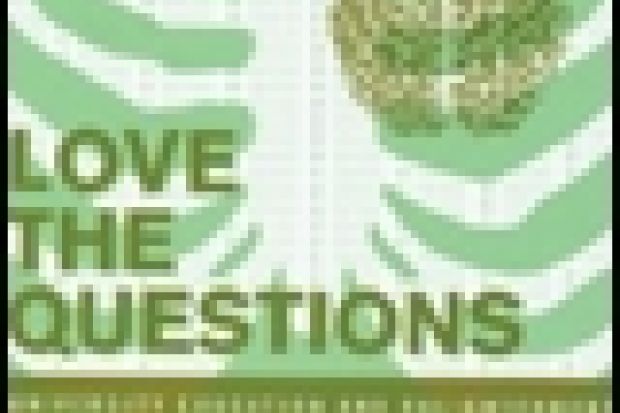This monograph is born out of a deep concern about the state of the contemporary university. Ian Angus attempts to balance "a realistic assessment of its present state and the forces that will undermine it" with "a sense of what can be saved or reinvented". His experiences in Canada bear an uncanny resemblance to the situation here in the UK and elsewhere. In a nutshell, the university has been "fiscally abandoned by a waning welfare state" to the open market; the public university, with its "larger social and public purpose of enlightenment", has become the corporate university.
Politicians wish the university to be more commercially relevant. (There is a threat that further funding will depend on its contribution to economic development.) This book suggests that commercial engagement may have gone too far. Angus concedes that the modern university must, as it always has, engage with its "capitalist environment" but he laments the erosion of its independence. Funders shape its purpose, and the university has "no centre and no unity; it is simply the sum of a number of parts, each part dancing to its own tune".
This is a recent transmutation. Before the corporate university, the public university was itself a "transformation of the traditional elite university". The public university still upheld the ideal of being an "institution of thinking", but was open to more than just the privileged. (Treasury staff and current politicians with university education probably attended this type of university or an elite, traditional university.)
Angus, a professor in the department of humanities at Simon Fraser University, Canada, contends that academic work creates the possibilities to "think meaningfully" and make sound judgements - in a word, enlightenment. Academics are not merely transmitters of knowledge but generators of new knowledge; students are educated by being drawn into a process of enquiry; "loving the questions" (the title of this book) more than the answers, which always "remain provisional". That idealism of the traditional university survived in the modern public university and remains the basis for any justification we make for academic freedom.
His anxiety, he says, is over the corporate university's "commodification" of education that endangers the process of self-knowledge. As the contemporary university took shape in the 20th century with the emergence of professional schools (such as law, medicine, theology and, more recently, business), liberal arts education still included the sciences. John Henry Newman and Matthew Arnold, for example, took that for granted. The new "techno-science", however, gradually jettisoned this connectedness; with it went the informing humanist tradition of university education.
Naturally, the universities demonstrate to varying degrees remnants of these previous mutations. Now, though, they have to survive in a globalised context in which "knowledge is privately owned". Those who generate income through "technology transfer" are privileged; self-knowledge is replaced by utility. The corporate university "does not serve, but operates". Prestige generates what is "unashamedly called cultural capital". Students become consumers.
In the corporate university, a few elite scholars "produce" knowledge (normally techno-science) while the vast majority are involved with "knowledge transmission". Angus cites the case of five major Canadian universities campaigning in 2009 to change research funding so that they alone would pursue "world-class research". Other universities would be virtually confined to undergraduate teaching. Have we not heard similar self-interested arguments by some vice-chancellors in the UK who, in the quest to make their institutions "world class" (whatever that means), abandon the cultural obligation to all citizens to offer access to a proper higher education?
Furthermore, distinguishing between teaching and research has created two classes of academic citizens; with the liberal arts normally forming the less-privileged class. This separation, writes Angus, "degrades education and creates a class of university teachers who do not advance in their fields because they cannot undertake research". A new elitism is created based now not on privilege or ability but on economic expediency. Certain subjects are "stigmatised for their supposed impracticality".
Angus concedes that the university's ability to support a democratic public function depends on whether the general public is willing to fund it. But that begs the question in the context of declining government funding. Moreover, in making his case Angus may run the danger of caricaturing senior administrators, in, for example, his claim that "what distinguished university teaching in the past ... was that university teachers were also researchers, thinkers and writers. They were involved in knowledge production, not just transmission." One applauds this view, but nowhere is there a critique of university teachers who expect public funding and academic freedom but who are not "researchers, thinkers and writers". When administrators with the invidious task of balancing the books attempt to address the issue, they incur the predictable criticisms.
Administrators and politicians should read this book. I fear some of them may dismiss it as outdated idealism, but that would be a grave mistake. Angus concedes that some changes to the sector may be irreversible, but emphasises that we must seek to ensure that the university never loses its informing humanist tradition. It is easier said than done, but well worth struggling for.
Love the Questions: University Education and Enlightenment
By Ian Angus
Arbeiter Ring, 102pp, £9.95
ISBN 9781894037402
Published 10 June 2010
Register to continue
Why register?
- Registration is free and only takes a moment
- Once registered, you can read 3 articles a month
- Sign up for our newsletter
Subscribe
Or subscribe for unlimited access to:
- Unlimited access to news, views, insights & reviews
- Digital editions
- Digital access to THE’s university and college rankings analysis
Already registered or a current subscriber?
